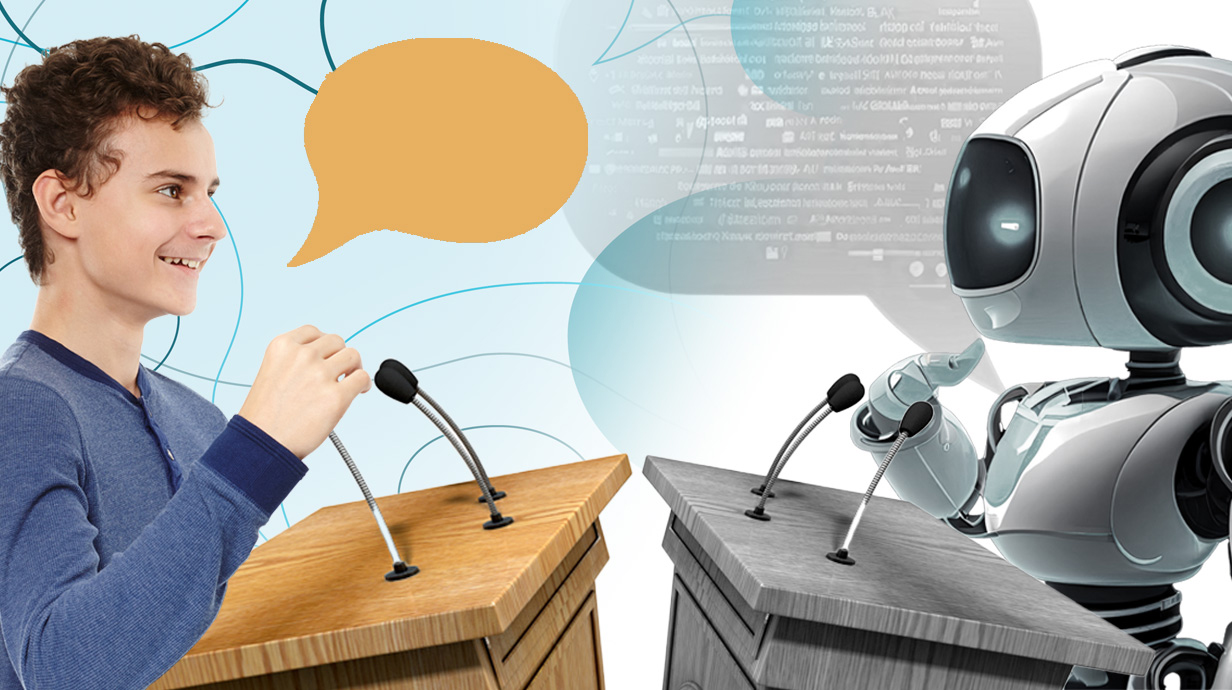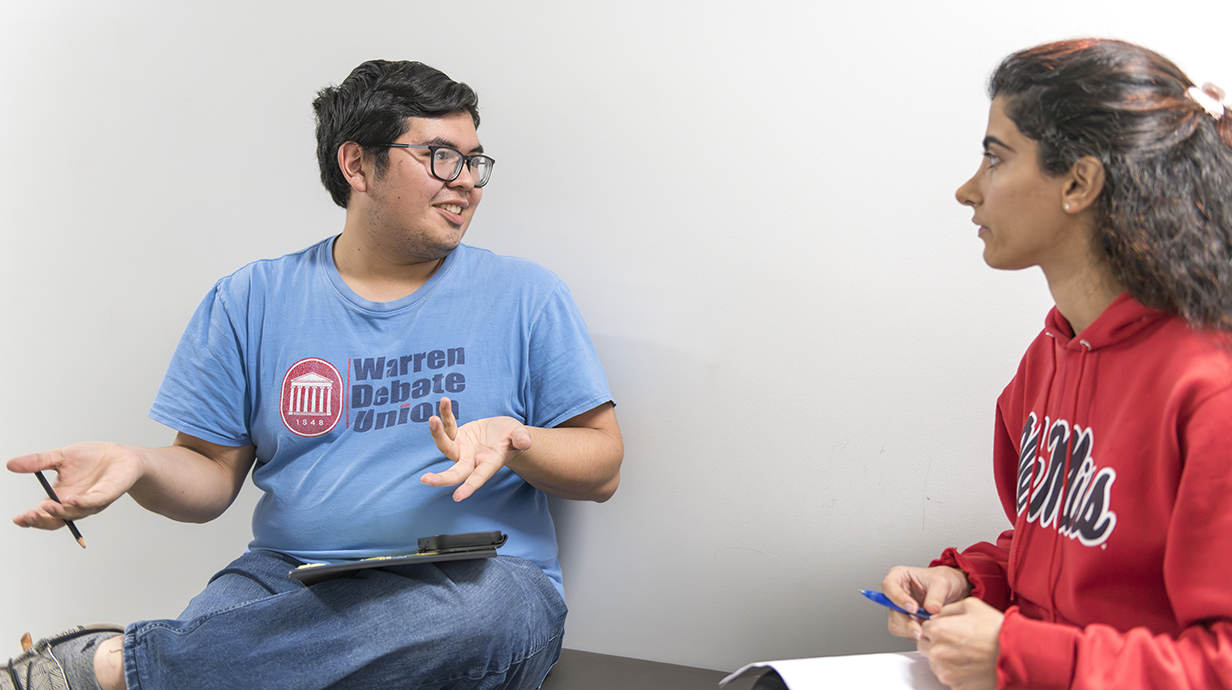University Study Hints Debate Skills May Lessen Negative Impact of AI
Debating builds comprehension, detailed learning that artificial intelligence cannot, researchers say

OXFORD, Miss. – Higher education is facing a tough challenge as it adapts to the advent of artificial intelligence. To combat it, a University of Mississippi professor proposes using one of academia's oldest weapons: debate.
Learning to debate is not only learning to argue but also learning to understand a subject so completely that one might defend or oppose any aspect of it, said Jacob Justice, assistant professor of speech communication, in a study published in Argumentation and Advocacy.
"The impact of AI on higher education broadly – everybody's still trying to figure that out to an extent," said Justice, who also coaches the Warren Debate Union, the Ole Miss debate team. "For the past two years, we've been grappling with this technology.

"Even though AI has offered a shortcut through the writing process, it actually still is important to be able to write and speak and think on your own. That's what the focus of this research is: how debate engenders those aspects of being able to write and speak and study and research on your own."
Justice and co-author Brett Bricker, associate director of debate at the University of Kansas, published their work in a special edition of Argumentation and Advocacy dedicated to collegiate policy debate. The researchers argue that learning to debate builds comprehension, research skills and empathy.
Recent studies show that using AI tools to assist with writing results in a 25% reduction in accuracy and a 12% decline in reading comprehension.
Artificial intelligence is also rising at a time of decreased literacy and reading comprehension nationally. The National Assessment of Education Progress reported that less than half of U.S. fourth graders scored at or above a proficient reading level in 2022 – the most recent year for which data is available – a significant decline from previous years.
"We thought about the greatest concerns that people have about artificial intelligence – namely, that it's going to make people worse at critical thinking and worse at argument construction," Justice said. "We saw that debate offers skills that could make students better able to navigate those problems."
Researching a debate topic takes more than a cursory knowledge of a subject or a bulleted list of highlights, which is all that most AI can provide, argue Justice and Bricker.
"Because debate's not just about stating the points," Justice said. "You've got to be able to respond in a time-pressured setting to what your opponent is going to say and rebuild your arguments, and then compare and weigh arguments.

Two members of the Warren Debate Union at Ole Miss chat about an upcoming debate. In the age of artificial intelligence, debate is one way that students can develop knowledge and research skills to help them succeed. Photo by Srijita Chattopadhyay/Ole Miss Digital Imaging Services
"Those are things that a college debater will over time become very good at that I do not think the current generation of AI platforms are doing quite as well."
Although the first American intercollegiate debate was staged in 1892 between Harvard and Yale, debate has been used to educate and understand complex topics since as early as 300 B.C.E.
"The early philosophical societies may have vehemently disagreed on a subject, but they were willing to sit across a table from each other and treat each other's arguments with respect," Bricker said. "That was always viewed as valuable."
Debate also increases a participant's capacity for empathy by asking them to consider their opponent's point of view, Bricker said.
"Empathy is really about understanding the perspective of others, and debate does that in a variety of ways," he said. "Most debate preparation is thinking about what the other side says, what they believe, what they are likely to argue against you.
"A lot of people think of that as antagonistic – 'I'm going to defeat that other person' – but what it does for most students involved in debate is give them a holistic perspective of another viewpoint. Most students actually walk away saying, 'I can see where they are coming from.'"

Bricker and Justice hope to see debate teams rise across K-12 and higher education, but also want to see more use of debate in classrooms from every curriculum.
Communities or schools with debate programs should properly fund and protect them, Bricker said. And schools without debate should seriously consider starting their own programs, he said.
"Those are the two most important and direct takeaways," he said. "The third – and it is a grand vision – I think it is possible to integrate debate across the curriculum. We know students who are in debate are motivated.
"They learn to research better than your average graduate student does. They walk away from their education being more fully enriched because they were involved in debate."
Like any good debater, Justice and Bricker plan to take on the other side of the argument in the next phase of their research, in which they plan to answer the question: How could AI enhance debate?
Top: Most artificial intelligence tools provide only cursory knowledge of a topic, but debate provides research and comprehension skills to understand all aspects of the subject. Illustration by Stefanie Goodwiller/University Marketing and Communications
By
Clara Turnage
Campus
Office, Department or Center
Published
September 18, 2024
